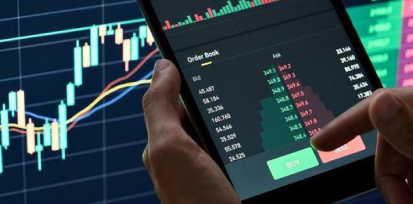

JCI Under Pressure, Global Economic Concerns Lurk
Jakarta – Monday was one of the worst days for the Composite Stock Price Index (IHSG) in Indonesia. In trading session II, JCI fell by 4.07%, ending the session at 7,010.92. This decline occurred after several days earlier the JCI was in the range of 7,200-7,300. Negative sentiment in global markets seems to be undermining investor confidence, even though the domestic economy is showing fairly good growth.
The Central Statistics Agency (BPS) has just released gross domestic product (GDP) data for the second quarter of 2024 which recorded growth of 5.05% on an annual basis (year-on-year/yoy). Although lower than the previous quarter which reached 5.11%, this figure still shows healthy growth. On a quarterly basis (quarter-to-quarter/qtq), GDP increased 3.79%, indicating a significant recovery from the previous quarter which grew negative 0.83%.
"Household consumption remains the main driver of economic growth, with a contribution of 54.53% to GDP," said Moh. Edy Mahmud, Deputy for Balance Sheet and Statistical Analysis at BPS, at today's press conference. Household consumption grew 4.93%, driven by strong demand and people's purchasing power, as well as holiday periods such as Eid and Eid al-Adha which increased people's mobility.
However, this positive sentiment from within the country is not enough to stem the flow of concerns coming from abroad. The potential for a recession in the United States and the impact of an increase in the benchmark interest rate of the Japanese central bank (Bank of Japan/BoJ) also puts pressure on the JCI.
In the United States, slowing labor market data and some disappointing economic indicators are fueling fears of a recession. Jobless claims rose significantly to 249,000, well above the projected 236,000 claims. In addition, non-farm payrolls (NFP) data only recorded an addition of 114,000 jobs, far from the market estimate of 175,000 jobs. The unemployment rate also rose to 4.3% in July 2024, from the previous 4.1% in June 2024. This condition adds to market players' concerns about the potential for a recession and a hard landing for the US economy.
Meanwhile, from Japan, the BoJ's decision to raise interest rates had a major impact on the stock market. The Nikkei 225 index plunged by 12.4% in one day, the worst decline since 2016. The increase in interest rates sparked concerns about the negative impact on Japanese companies and the strengthening of the yen which could erode the competitiveness of Japanese exports.
With pressure from these external factors, the JCI seems to have to fight harder to recover. Investors are now closely monitoring the policy steps that will be taken by the government and monetary authorities, both at home and abroad, in facing increasingly complex global economic challenges.
Meanwhile, market players in Indonesia hope that strong economic fundamentals, especially from the household consumption sector, can provide a cushion against external pressures. The hope is that with people's purchasing power remaining strong, the JCI can recover and find a more stable footing in the future.




 Back to Home
Back to Home








